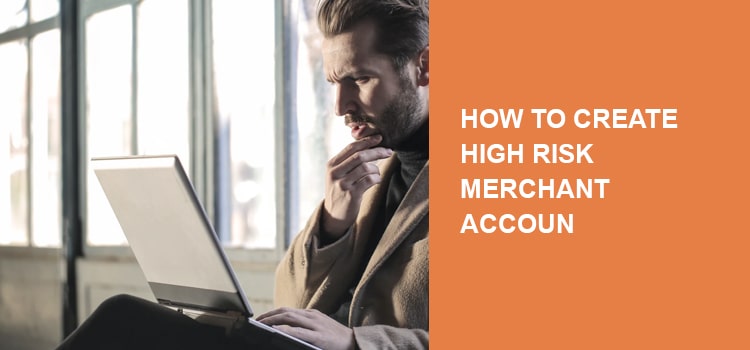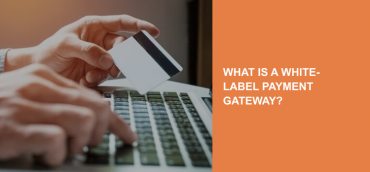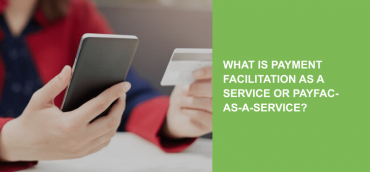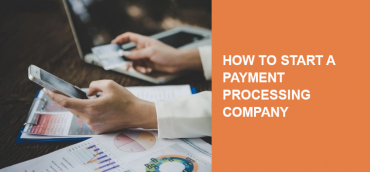More and more trade is done over the Internet, which means that shops need a system to accept payments. Many people use intermediaries or payment system aggregators, but there are some online stores that still lack the ability to pay by card. It is not acceptable.
If you are new to the e-commerce business, you are probably wondering what a merchant account is. How does it work and what do you need to get it? What benefits will follow after opening an account? Read this article to the end and you will surely find out all the answers.
The definition of a merchant account
A merchant account is a modern e-commerce solution for accepting payments. It is necessary for a structured B2C business, including through non-resident companies abroad. This is not necessarily about online sales; opening a merchant account will also be required for offline trading. Usually, online stores, online casinos, and online game operators need to open merchant accounts.
Without opening a merchant account, it is no longer possible to imagine a single online business or marketplace. This is the key to the global consumer market for your goods or services. It allows you to accept payments around the clock from around the world, regardless of the working hours of the banking institution. Customers can pay at night, on a public holiday, and still the payment will arrive promptly and on time. Operating a business without borders and 24/7 – isn’t that what every entrepreneur wants?
There are three types of merchant accounts:
- Low-risk;
- Medium risk;
- High-risk.
How do banks determine the risk level?
So, a company is considered high-risk if several criteria are met:
- A startup business;
- Risky industry(with high chargeback possibilities). For example, the chargebacks911 data shows us the average chargeback rate for specific industries.
When the chargeback ratio hits 1%, the merchant may face higher processing fees.
- The company is in financial difficulties;
- Companies with a bad credit history;
- The company sells goods and services to high-risk countries (Iran, The Bahamas, Cambodia, Barbados, Guinea-Bissau, Iraq, Mali, Swaziland, Mozambique, Myanmar, Jamaica…);
- Questionable goods and services
- The company’s owner provided inaccurate information about the activities of the business and its legal address;
- Monetary transactions do not correspond to the declared activity.
Frequently, foreign banks refer to the following areas as high-risk products and services:
- Casino or internet gambling;
- Sale of medicines;
- Dating services;
- Bitcoin or forex trading;
- Internet auctions;
- Sale of firearms;
- Sale of jewelry;
- Lending;
- Telemarketing;
- Adult content;
- Investments, remittances.
Absolutely all banks, and foreign banks in particular, constantly monitor the activities of companies in order to verify the fulfillment of the terms of the signed contract for servicing a corporate account. It is the value of compliance with all clauses of the signed agreement that allows you to eliminate the reputation and operational risks of the bank, and also eliminates the violation of the structure of processing transactions and their challenges.
Why is everything arranged this way? It is easy to explain, it is the bank that is able to cover the maximum risk of processing payments. We also want to draw your attention to the fact that the list of risky businesses is not final. For example, your company may be part of a prohibited industry, but at the same time this does not restrict access to opening an account in the payment system.
We mean the following, suppose you sold information courses that can help entrepreneurs start their business on the online site X. In such a situation, you are technically in the field of online auctions, but in practice such an operation cannot be attributed to an online auction if your product (information courses) is delineated with your site.
What to expect after opening a high-risk account?
After you have managed to open an account in a payment system, do not forget that the privilege of accepting payments comes at a price. Therefore, for a high-risk business that needs a financial instrument, the price will be much higher in many ways:
High fees
Financial service providers who specialize in high-risk businesses tend to charge higher fees than low- to medium-risk clients.
Scammers
There are fraudulent companies whose goal is to find a legal entity with a high degree of risk, to offer assistance “at a low cost”, and having sealed the deal with a reinforced concrete contract and received money, the company abruptly disappears. Before opening an account in the payment system, make sure that the partner is really reliable, has been on the market for more than one year and has a good reputation.
Reserves
There are income-limiting reserves that are needed to carry out the insurance function. What does this mean? If you suddenly have problems, the payment system will be able to compensate for the arisen debts. Reserves are divided into two types:
- preliminary reserve – allows you to hold all cash on operations until the reserve balance is reached
- rolling reserve – provides a daily deduction of a certain percentage of all your conducted transactions
But even in spite of all these restrictions, many legal entities make decisions to open accounts in payment systems as high-risk clients.
The pros and cons of a high-risk merchant account
We mentioned above that the privilege of accepting payments comes at a cost. And, perhaps, one of the most significant drawbacks in opening an account in a foreign bank with a high risk is the overpriced tariff policy. Many businessmen sometimes do not see the benefits of doing high-risk business due to the many constraints, difficulties and obstacles. But in reality, even such a business has its advantages, for example:
- Simple and quick settlements with clients, the ability to sell goods and services on the Internet 24/7;
- Clients get the opportunity to pay for goods and services through the company’s website using bank cards, and the company gets the opportunity to conveniently accept payments for its goods and services from anywhere in the world;
- For customers (buyers), the cost of transferring funds to a merchant account, as a rule, is lower than the cost of a regular bank transfer;
- The holder of a merchant account through his personal account receives all information about the payments made, can control the dynamics of sales and generate reports;
- Security: technologies are used that fully meet modern security requirements for online payments (Verified by Visa, Mastercard SecureCode and two-factor identification) and allow you to block fraudulent activities (“anti-fraud system”);
- If the acquirer has the possibility of multicurrency processing, funds from the holder’s card can be credited to the merchant account without conversion, and therefore without additional costs.
The choice of a high-risk payment processor
Increasingly, trade and service enterprises of various profiles, merchants, are faced with the task of organizing the receipt of payments for goods and services through the site. A particularly important issue here is the choice of a partner for receiving payments. Experts from payment services company Ikajo review the main options available. There are several criteria to consider before making a final decision, and these may be as follows:
- Experience and reputation of the payment system.
- The ability to agree remotely, requirements for a legal entity, store website, terms of connection, and launch.
- The amount of the subscription fee, the amount of deductions for each transaction (usually depends on the seller’s turnover).
- Customizing the design of the payment page.
- Support for multiple currencies, manual generation of invoices (useful for online stores in social networks), etc.
- Acceptance of payment from as many sources as possible.
- Refunds processing, checkout service, etc.
- Features of the merchant’s account (settings, statistics, manual invoicing, management, etc.).
- High level of qualification of technical support specialists. It is the last of the most important criteria to consider when choosing a high risk payment processor. An employee of the support department must react not only quickly, but also to the point. If the organization doesn’t have its own customer support team, forget about them. Remember: don’t just look at the commission for the purchase of what you are offered. Comprehensively evaluate potential candidates.
Choosing a financial service provider is a rather complicated process that requires a thorough study of not only tariffs, but also such nuances as reputation, rating, partners, available products, and supplier reliability. And of course, it is optimal to choose a payment providing partner in cooperation with a professional.
How to prepare a website?
According to Visa, there are certain requirements that every ecommerce website must met:
- Basic contact Information. The site should contain information about the organization: address, phone number, details of the legal entity.
- Cancellation and refund policies. The customer must be able to familiarize themselves with the conditions for the return of goods or cancellation of the service.
- Payment Methods. According to the rules of the international payment systems Visa and MasterCard, their logos must be placed on the main page of the site. Placing the logos tells your customers that they can settle with bank cards. This increases customer loyalty and improves website conversion. Besides, a separate section of the site should contain payment instructions that explain to the buyer the procedure for cashless payments in the store.
- The detailed description of goods. The seller’s website must contain a detailed description of the goods and services offered. Mandatory required: price, product/service characteristics, equipment, and warranty conditions.
- Terms of delivery of goods. The website must have a section describing the procedure, terms, and regions of a possible delivery of goods or services.
What documents are required to open a merchant account?
To register a merchant account, you will need to submit a certain package of documents. It includes the following:
- constituent documents of the organization;
- The details about a management team, shareholders, secretary;
- The details about the status of the company (obtaining is possible if the registration of the organization was made no earlier than 12 months before the application);
- company information certificate;
- information about the refund policy;
- photocopies of extracts of the enterprise.
This list includes only corporate documents, however, opening a merchant will be impossible without the personal documents of executives. In this case, you will need:
- photocopy of identity card (notarized);
- proof of residence;
- bank recommendation.
To open a merchant, you will need absolutely all documents from this list. The financial organization or processing center where you intend to apply to register an account should receive as much information as possible from you and about the company. In the future, they will be verified for authenticity, and a check will be made for the legality of the organization’s work.
The bottom line
If you have never opened a merchant account before, you may encounter several problems that can take a lot of your time. In this case, it is better to contact professionals with experience in offering such operations. Our specialists are ready to register a merchant in a bank or processing center registered anywhere in the world. We will provide expert advice on any issues and accompany the registration process from start to finish.




